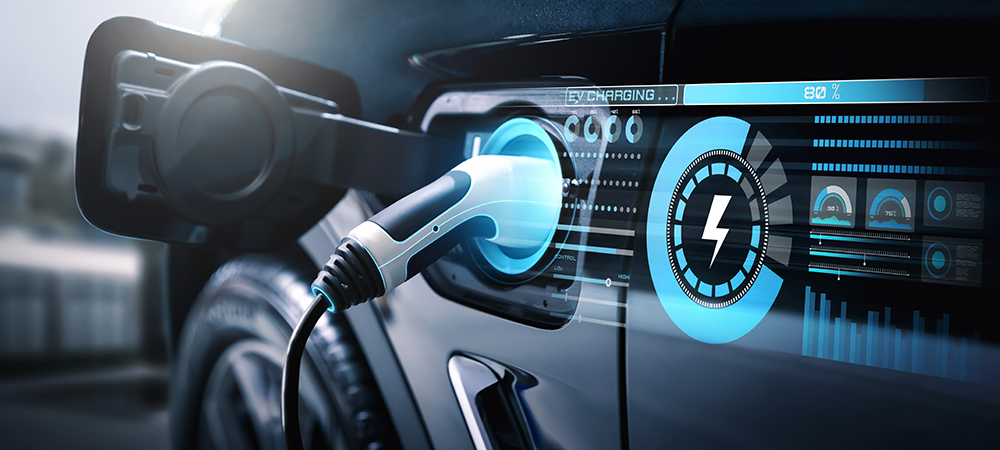The EVOS Fleet platform is a one stop shop enabling infrastructure to be installed and managed easily, with potential to scale all from a single-pane-of-glass solution.
EVOS, the Brisbane-based electric vehicle (EV) energy management and AC charging specialist, has unveiled a platform that will help businesses and their staff quickly transition to an electric vehicle future seamlessly and affordably without having to upgrade their electrical infrastructure.
The all-in-one EVOS-Fleet solution combines EVOS’ AC charging hardware – such as the Fleet 22 Home AC Charger, the SB7 or any of EVOS’ soon-to-be-developed chargers – with its energy platform to simplify the charging process and help businesses manage their fleet energy costs. It collects energy data from the EV, charger and the grid to make real-time, intelligent energy decisions to reduce the cost of power infrastructure and the cost of electricity.
The platform is ideal for businesses at a single site, enabling them to help staff shift to EVs by implementing easy-to-use charging infrastructure.
Importantly, the platform incorporates all aspects of the site’s electricity and charging infrastructure – and even allows for additional charger commissioning and installation to be ordered – into a single-pane-of-glass solution.
The one-stop-shop EV charging and energy management platform allows businesses to report on the cost of EVs, charger utilisation and carbon savings – while enabling the simple management of its charging assets.
“Our goal at EVOS is to tackle the hardest and biggest problem for business and fleets transitioning to EVs, which isn’t the vehicles, payments or drivers, but energy,” said EVOS CEO Marcelo Salgado.
“Because upgrading electrical capacity to any building is expensive and can take a long time, our EVOS-Fleet solution allows businesses to install more EV charging stations that intelligently share existing power between them, helping businesses avoid costly upgrades to their building or site.
“Our platform can manage the individual power output of each charging station to ensure the maximum load set for a site is considered and, importantly, is never exceeded. But more than that, it helps drivers and business owners alike understand energy, how they use their vehicles, when to charge and more – all within one platform.”
Flexible Energy Management Systems to Suit Business Needs and Site Requirements
The platform can be configured to suit the unique needs of a given site and business, allowing EV systems to be commissioned easily to perform to a business’ requirements. The simplicity of the site configurator allows operators to expand the systems with more charging stations or alter charge priorities.
In addition, there are a number of energy management systems EVOS-Fleet can be configured to in order to ensure costs and energy are optimised.
EVOS’ Dynamic Energy Balancing System (DEB) allows an organisation to install a larger number of EV charging stations to the EV power circuit without increasing the electrical capacity. It constantly monitors the power capacity used in the charger power circuit and automatically allocates the available power capacity to charging EVs on-site.
When multiple electric vehicles are charging, the EVOS DEB system will adjust each charging station’s power output based on pre-configured options to charge the electric vehicles. DEB ensures it never exceeds the power circuits limits and doesn’t overload a site’s electrical circuit.
The EVOS Capacity Energy Matching (CEM) system allows for the capacity of the whole building, or selected circuits, to potentially be used for EV charging.
Real-time monitoring of the building’s power circuits and main power feed allows EVOS to safely over-subscribe the charging circuits and match total spare capacity to charging demand. The CEM system constantly monitors the energy used in the building and automatically allocates the available capacity to the EV charging power circuit.
“We also enable static load balancing and solar optimisation for sites,” said EVOS CTO Chris Crossman.
“We can configure the platform to suit the infrastructure and requirements of any site, ensuring businesses are keeping costs as low as possible while providing the infrastructure their staff need to charge their vehicles quickly and easily.
“Here at EVOS HQ we were able to add 150% more charging than we could normally have done without the energy management system in place.”
Ease of use, transparency and security baked into platform
The platform includes an application for an Installer/Contractor to quickly commission an EVOS charger. This provides visibility of the hardware in the platform in order to provide support and fix problems that may arise, with the commissioning process focusing on quality assurance.
Businesses and EV drivers can access real-time charging data through the MyEVOS app, providing detailed information on each charging session, so drivers know exactly how much power their EV is drawing and how long it will take to fully charge.
Meanwhile, EVOS has successfully completed a third-party cybersecurity review, with the platform passing rigorous penetration testing.
“Safeguarding charging and infrastructure data assets remains a priority,” said EVOS Chief Experience and Innovation Officer Seshan Weeratunga.
“Our platform, chargers and infrastructure EVOS utilise WireGuard VPN to encrypt data to ensure maximum security.”
EVOS Portfolio Continuing to Expand
Having secured a $1.7m initial capital raise in July 2021 and a $5m raise in July 2023, the company has unveiled its Fleet Home 22 AC Charger, its energy management platform and its SB7 home charger.
The company has also established an export market with products having been shipped to the Middle East, Malaysia, Japan and other regions.
“The rapid uptake and interest in our solutions has emboldened us to continue to innovate with our mission to solve the problem of energy,” said Salgado. “We’re currently fine-tuning our next charger which is suitable for the outdoors and allows for two cars to charge simultaneously, while we continue to push into new markets abroad.”
Click below to share this article

